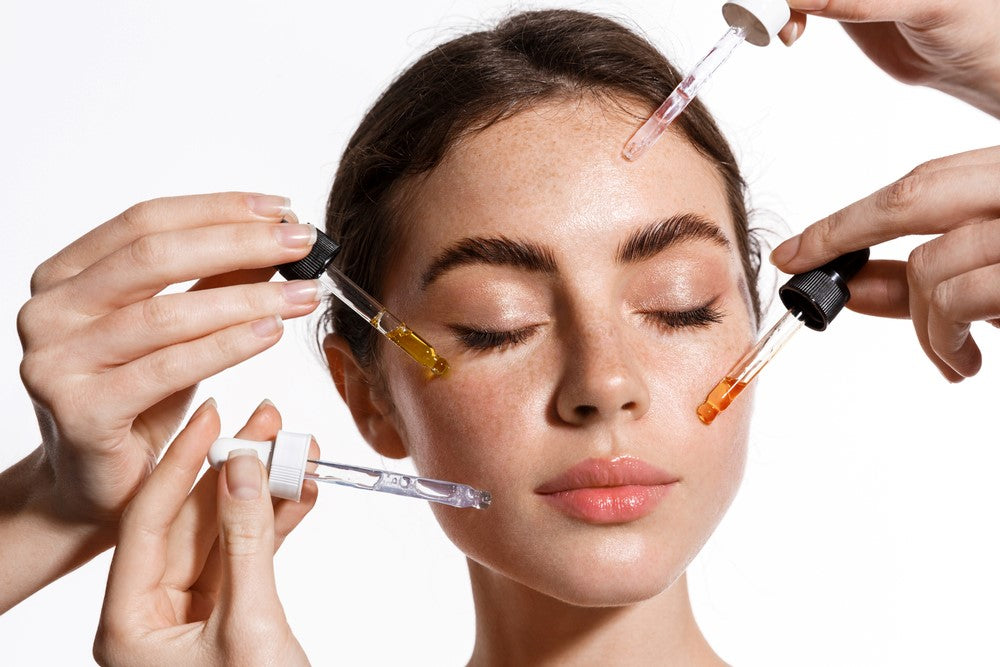The world of skincare is filled with an overwhelming amount of information, tips, and product recommendations. With so much advice readily available, it can be challenging to discern between scientifically supported facts and mere myths.
Science-based skincare is rooted in evidence and relies on proven ingredients and techniques. In this comprehensive guide, we will explore the principles of science-based skincare, debunk common myths, and provide you with practical tips for achieving healthy, radiant skin.
By understanding the science behind skincare, you can make informed decisions and develop a skincare routine that truly works.
1. Understand Your Skin's Basic Needs
Before delving into the world of skincare, it's important to understand the basic needs of your skin. The skin acts as a protective barrier against environmental aggressors, regulates body temperature, and plays a vital role in maintaining overall health. It requires proper cleansing, hydration, protection from the sun, and targeted treatment for specific concerns.
By understanding the fundamental needs of your skin, you can establish a solid foundation for an effective skincare routine.
Understanding Your Skin
- Skin Structure: Learn about the anatomy of the skin, including the epidermis, dermis, and subcutaneous layer, to understand its functions and needs.
- Skin Types: Understand the different skin types, such as oily, dry, combination, and sensitive, to tailor your skincare routine accordingly.

The Basics of a Science-Based Skincare Routine
- Cleansing: Cleanse your skin twice a day with a gentle, pH-balanced cleanser to remove impurities without stripping the skin.
- Moisturizing: Hydrate your skin with a moisturizer that suits your skin type to replenish moisture and maintain a healthy skin barrier.
2. Importance of Sun Protection
One of the most crucial aspects of science-based skincare is sun protection. UV radiation from the sun is the primary cause of premature aging, including wrinkles, age spots, and sagging skin. It can also lead to more severe conditions such as skin cancer.
To protect your skin, use a broad-spectrum sunscreen with an SPF of 30 or higher, and apply it generously to all exposed areas. Remember to reapply every two hours, especially when outdoors for extended periods.
Sun protection is not limited to sunny days; UV rays can penetrate through clouds and even windows.

Protect Your Skin from UV Rays
- One of the primary causes of premature wrinkles is exposure to harmful ultraviolet (UV) rays from the sun. To shield your skin, always wear sunscreen with a high SPF, even on cloudy days. Opt for a broad-spectrum sunscreen that protects against both UVA and UVB rays.
- Wear Protective Clothing: Along with sunscreen, cover your skin by wearing wide-brimmed hats, sunglasses, and clothing that provides adequate coverage. This will further shield your skin from the sun's damaging effects.
3. Ingredients Backed by Scientific Evidence
When selecting skincare products, look for ingredients with scientifically proven benefits. Some key ingredients supported by research include:
- Retinoids: Derived from vitamin A, retinoids have a wealth of scientific evidence demonstrating their effectiveness in reducing wrinkles, improving skin texture, and stimulating collagen production. Prescription retinoids such as tretinoin and over-the-counter retinol are widely recognized for their anti-aging properties.
- Vitamin C: As an antioxidant, vitamin C helps protect the skin from free radicals, promotes collagen synthesis, and brightens the complexion. Look for stable forms of vitamin C, such as L-ascorbic acid, and opt for products with a concentration of 10% or higher.
- Hyaluronic Acid: Known for its excellent hydration properties, hyaluronic acid attracts and retains moisture in the skin, resulting in a plump and supple appearance. It is a scientifically proven ingredient that benefits all skin types.
- Niacinamide: Also known as vitamin B3, niacinamide offers multiple skin benefits, including improving skin barrier function, reducing redness and inflammation, and regulating sebum production. It has been extensively studied and proven effective for various skin concerns.
4. Be Wary of Marketing Claims
The skincare industry is highly competitive, and companies often make exaggerated claims to sell their products. Be skeptical of extravagant promises, quick fixes, or magical ingredients that claim to defy the laws of nature. Remember that true skin improvement takes time and consistency. Look for products backed by clinical studies and supported by credible sources.
Debunking Common Myths
- "Natural" Equals Better: Understand that natural ingredients are not always superior to synthetic ones. It's the effectiveness and safety that matter.
- More Is Better: Avoid overusing products as they can lead to skin irritation and disrupt the skin's natural balance. Stick to recommended usage guidelines.
- Pore Shrinking: Know that it's not possible to shrink the size of your pores permanently. However, keeping them clean and using products that improve skin texture can minimize their appearance.
- One-Size-Fits-All Products: Recognize that everyone's skin is unique, and what works for one person may not work for another. Tailor your skincare routine to your specific needs.
- Expensive Products are More Effective: Price does not always correlate with effectiveness. Look for evidence-based claims and ingredient concentrations rather than relying solely on price tags.
- "Miracle" Products: Be skeptical of products claiming miraculous results. Skincare is a long-term commitment, and realistic expectations are important.
- DIY Skincare is Always Safe: Not all DIY skincare recipes or remedies are safe or effective. It's essential to research ingredients and consult professionals when needed.
5. Customization is Key
Every individual's skin is unique, and there is no one-size-fits-all solution in skincare. Factors such as skin type, concerns, age, and lifestyle play a significant role in determining the most effective skincare regimen.
Experiment with different products, observe how your skin responds, and tailor your routine accordingly. It may be helpful to seek guidance from a dermatologist or skincare professional to develop a customized plan that addresses your specific needs.

Seeking Professional Advice
- Dermatologist Consultation: If you have specific skin concerns or persistent issues, consider seeking advice from a dermatologist who can provide personalized recommendations.
- Esthetician Expertise: Consult an esthetician for professional skincare treatments and guidance on developing an effective routine.
- Trustworthy Sources: Rely on reputable sources, such as scientific studies, peer-reviewed journals, and trusted skincare experts, to gather accurate information.
Conclusion
Achieving healthy, radiant skin requires separating fact from myth and embracing science-based skincare practices. By understanding your skin type, adopting a consistent routine, and incorporating key ingredients backed by research, you can optimize the health of your skin.
Debunk common skincare myths and seek professional advice when needed. Remember, the foundation of science-based skincare lies in evidence and understanding the unique needs of your skin.
Ready to transform your skincare routine with scientifically proven collagen skincare? Experience the power of evidence-backed products that nourish and rejuvenate your skin. Say goodbye to myths and embrace the benefits of science-backed collagen formulations. Enhance your skin's elasticity, hydration, and youthful appearance.
Shop our collagen skincare today and unlock the secret to radiant, age-defying skin.




